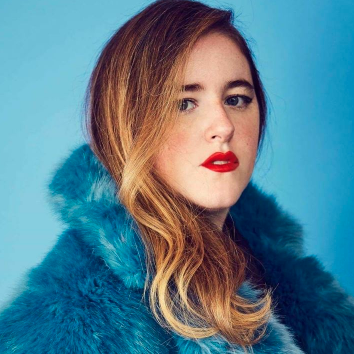Anja Rubik recently went for a beachside stroll in Malibu with her friend Anthony Vaccarello, the creative director of Saint Laurent. It was just another day in paradise, until Rubik spotted pieces of plastic waste clogging the shore. “I couldn’t just pass and ignore it, so I ended up on my knees,” picking up the trash, she recalls. “He’s like, ‘No, let’s go for a walk.’ I’m like, ‘Listen! This is stronger than me. You don’t understand!’ ”
An avid scuba diver, Rubik started noticing that when she returned to the same underwater spots, there were fewer varieties of marine life and more garbage. “I’d come up with these huge bags of plastic and trash,” she says. When she started to research the issue, she learned that 8 million tons of plastic are dumped into the oceans each year.
“Every time we look at the ocean, it seems exactly the same to our eye,” she says. “And we think it’s going to be fine.” Unfortunately, that’s not the case: She points to the rising pH levels of the water, which contribute to climate change phenomena like the bleaching of coral reefs. “The ocean has always been there, unchanging on the surface and serving as our backyard dump,” she says. “Its sheer enormity was something we floated over, fished from, or flew above.”
Rubik had been looking for an environmental organization to get involved with, and in 2016, she met Cyrill Gutsch, the founder of Parley for the Oceans. She liked the fact that Parley was “very action- and solution- based,” she says. “It’s about collaboration. It’s not about protest, not about exclusivity.” Since then, she has been consulting with them on projects and spreading the word about the charity’s work. Parley has adopted what it calls the AIR strategy: Avoid plastic wherever possible, Intercept plastic waste, and Redesign the material itself. Rubik has worked closely with the organization to get the message out that even the smallest lifestyle changes can have a significant impact. When she did a campaign against plastic straws in her native Poland, people would come up to her and ask what difference it made to forgo one straw: “It’s the first step. Once someone remembers to order that drink without the straw, they will soon say no to the plastic cup, and then the plastic bottle,” she’d tell them. She hopes these behavioral shifts will lead to bigger ones. “The next thing you know, they’re voting for a politician who believes in climate change; who sees the dangers of plastic pollution, deforestation, toxic air pollution, and loss of wildlife; and who sees that we have to save our planet.” she says. “We need a fundamental change in our relationship with the planet. We need to consciously and proactively become the generation that saved our planet and, in doing so, become the generation that saved ourselves.”
Rubik, who spoke at the UN for World Oceans Day last June, wants the fashion industry to bring its buzz-creating alchemy to bear on conservation. “We are the experts in change, and we are able to drive movements and create trends faster than any other industry in the world,” she says. “We should use that power to make sustainability no longer just a catchphrase, but the only way forward.”
Hair by David Von Cannon at Starworks Artists; Makeup by Sil Bruinsma at Streeters; Manicure by Makisakamoto at The Wall Group. Produced by Catherine Sans at Serlin Associates.
This article originally appeared in the July 2019 issue of ELLE.












